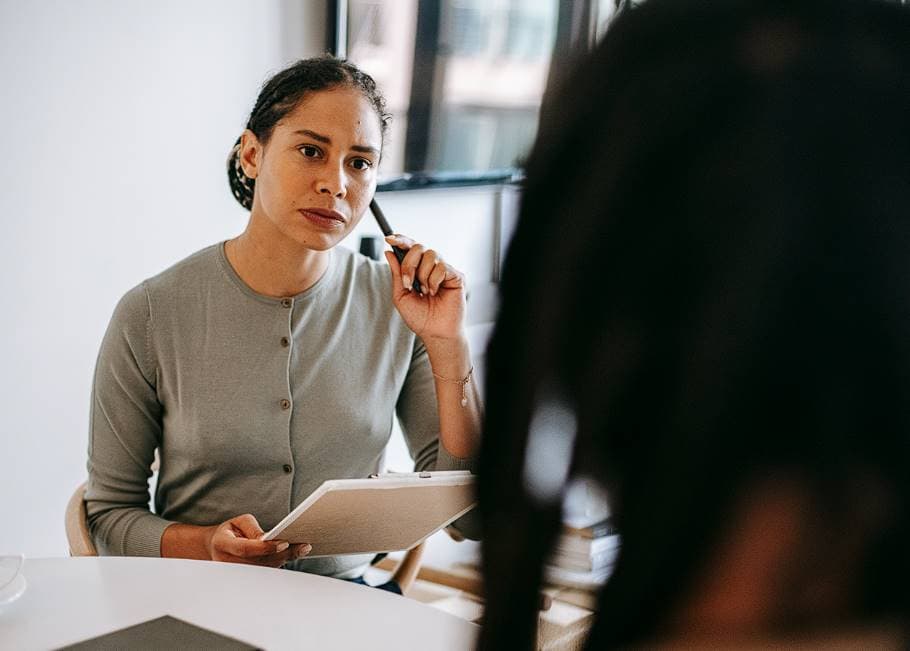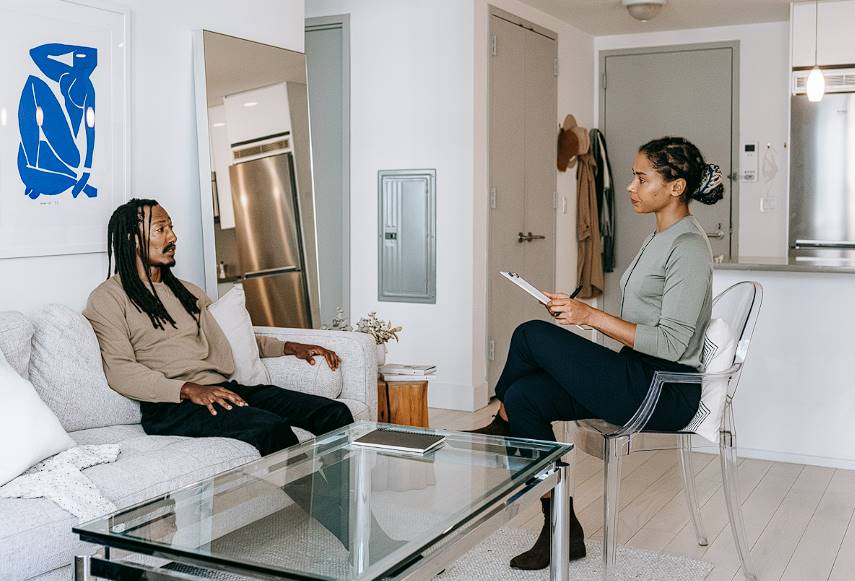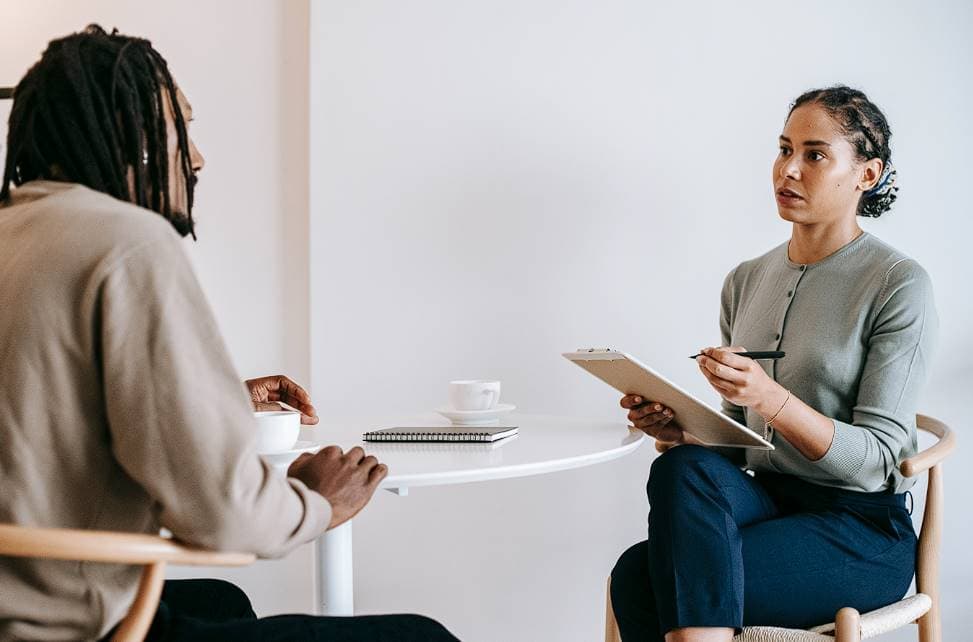Counselling is an important part of getting over addiction to alcohol and drugs that people thinking about treatment might not think about enough.
Counselling is a big part of the best programmes across the country for a good reason: dealing with the effects of addiction means learning how to deal with personal triggers and live a healthy, balanced life after treatment.
This development keeps people from reusing drugs in the weeks, months, and years following their first addiction treatment.
Counselling helps people learn how to make better decisions and improves their mental and spiritual health. A growing number of people are going to drug rehab centres to get help, which has led to a need for these skilled counsellors at all levels.
What Is Addiction Counselling?
Different kinds of addiction counselling exist, but individual counselling is the most common. Getting better people can also go to family and group counselling sessions.
No matter what kind of counselling it is, these sessions give people a chance to talk about their struggles with substance abuse and wellness, among other things.
Counselling for addiction is a very specialised type of therapy. It talks about addiction as a serious illness, not just as a sign of a bigger problem. This doesn't change the fact that the person's underlying problems have affected how they act around alcohol or illegal drugs.
The problems and issues that led to narcotics use are discussed during counselling. After a full assessment, the therapist or counsellor can make a treatment plan that fits the person's needs. This treatment is meant to help people overcome their problems and reach their goals.
The process of counselling for addiction is one of helping. It gives people the tools to face their fears and relieve stress and anxiety.
One of its many benefits is that it can help people through hard times by giving them the tools they need to deal with the situation and take the steps they need to get through it.
In addiction counselling, the person's behaviour and goals are examined to determine what led to the addiction. This process helps people become more self-aware and understand themselves better, which are important steps to recovery.

Why Is Counselling for Drug Use So Important?
Drug detox takes care of a person's physical addiction to drugs, but there is also a big psychological addiction to substances that needs to be dealt with. Counselling is used to deal with this.
Drug addiction counselling is about helping people figure out why they use drugs and become addicted to them. Sessions focus on what "triggers" a person to use drugs and help them find better ways to deal with these stressful events.
Some mental and social things can be very strong causes that result in relapse:
- Environmental clues, like going to a neighbourhood,
- Spending time alongside friends who still use social networks is one way to use them.
- Stress, especially stress that comes on quickly
These things can make you want to use them again and again. Counselling helps you stop wanting to use drugs or alcohol and teaches you how to cope with life without them.
Several types of counselling are used to treat problems with using drugs. We don't know that one method is better than another. In the same way, there is no one way to treat opiate addiction that works for everyone. Your addiction and your needs will be considered when making the right treatment plan.
Benefits Of Drug Addiction Counselling
When counselling helps the person figure out the problems that led to drug abuse, there is a better chance that they will be able to get clean. People might start using drugs because of stress, emotional trauma, bad influences, etc.
With the help of counsellors who specialise in addiction, the causes can be addressed, and the patient can be helped to become more aware of their choices. Here are a few ways that substance abuse counselling can help a person trying to get clean from drugs.
Here are some good things that happen when you decide to go to counselling for drug addiction.
Situations that Cause Substance Abuse
One benefit of counselling in a treatment programme for drug addiction is that it helps find the situations, events, and times that lead to continued drug use.
You may not have realised how certain interpersonal dynamics make addiction worse or how a certain event in your life changed you. Counselling can help you deal with the core problems that cause you to feel disconnected or empty, making you more likely to become addicted.
New Perspective
Drug addiction counselling helps people see things from a different point of view, which helps them figure out what behaviours, habits, or thoughts make them want to use drugs. A drug addiction counsellor can help change these bad habits by using cognitive behavioural therapy therapies that teach the person how to do things differently.
Helps Treat People With a Dual Diagnosis
Someone with a drug or alcohol problem often also has an issue with their mental health. This could be bipolar disorder, anxiety, depression, or something else. If the mental health issue isn't treated, it's possible that getting better will be much harder.
Patients addicted to drugs or have mental health problems can get help from counselling because they will get therapy for their bad habits and medicine for their mental health problems.
Can Support Addiction and Mental Health Directly
One-on-one counselling can help people with drug addiction and mental disorders find solutions. Methods to help you get better go hand in hand with help for depressive disorders or any additional psychological problem you may have. As addiction and mental disorders can affect each other, it is best to treat both simultaneously in a programme for that purpose.
Relapse Prevention
When people feel the urge to use drugs again, they are told to call their drug addiction counsellor as soon as possible to receive the help they need to avoid a relapse.
Can Provide New Recovery Behaviour Strategies
Counselling can help you stay sober by giving you tools like behaviour strategies to help you stay away from old habits and people who could hurt your recovery. Cognitive-behavioural therapy is one of these methods.
It helps a person in recovery figure out unhelpful methods for thinking and behaving and substitute them with more helpful and healthy ones. CBT is usually just one part of a bigger treatment plan, and it can be used to treat both addiction and other mental health problems simultaneously.
Improving Family Relationships
Counselling isn't just for those trying to get clean from drugs; it's also for their loved ones and others who care about them. Counselling with family members is a great way to ensure that healing will be successful and effective. If the family doesn't work well, it could affect how well the patient improves.
When family members go to family counselling, they can learn further about how to talk to each other better, which can help them talk about important things like drug use. With open communication, families can start to heal, and people may start to trust each other again.
What Are The Most Common Types Of Counselling For Addiction?
There are many ways to get help with addiction, but there is no solid proof that one method is better than the others. The right approach depends on how well it fits each person.
Even though any kind of counselling is helpful, most people who are addicted to drugs prefer group sessions because they offer peer support and hold each other accountable, which lowers the risk of relapse.
Most recovery programmes include counselling for addiction as part of their full treatment. This ensures that each person gets the care they need and keeps them from relapsing. Talk to a specialist in getting over an addiction to find out what your options are.
These counselling methods recognise that addiction is a complicated problem that can be helped by personalised interventions that aren't just focused on drugs.
Even if someone doesn't want to improve, they can still get better with treatment. Medication can help with drug abuse and mental health problems at the same time.
There's no doubt that all kinds of addiction counselling work. But the number of options can be confusing for people and families. This part talks about the different kinds of counselling for addiction.

Family Counseling
Family counselling is a chance for family members to return to how they were before drug addiction took over their lives. Family counselling programmes can happen before or after the rehabilitation process. Parents, siblings, and children can always say what they think.
This may be the initial occasion that family members have talked to the person directly about their addictive disorders and the effects of it. This can be a great way to start a conversation.
Some sessions may also happen without the person who is addicted being there. During these sessions, the counsellor can show the family the best and most effective ways to help the person they love to get back to normal life after treatment.
Group Counseling
Group counselling gives recovering addicts a chance to share their experiences with others in the same drug rehab programme and get support from them. Group counselling is an achievement in and of itself for many people since most have never talked honestly and openly with anyone regarding their problems.
Individual Counseling
Most drug rehab centres have one-on-one counselling as their main service. During these sessions, the therapist and the patient can discuss what led to the person's addiction and find ways to help them stay clean. At least once a week, there is a meeting, and the counsellor or therapist keeps track of how things are going.
Conclusion
Counselling is an important part of getting over addiction because it helps people deal with their own triggers and lead a healthy, balanced life after treatment. It helps people make better choices and makes them happier and healthier mentally and spiritually.
Addiction counselling is a type of therapy that treats addiction as a serious illness rather than as a sign of a bigger problem. It helps people figure out what problems led to their addiction and make a treatment plan that fits their specific needs.
Addiction counselling helps people face their fears, deal with stress, and learn more about themselves, all of which are important parts of getting better. It also helps people understand their actions and goals, which helps them become more self-aware and learn more about themselves.
Counselling for drug addiction is important for both bodily and psychological addiction. It explains why people use drugs and become hooked to them.
Relapse can be caused by both mental and social things, such as environmental cues, spending time with friends, and worry. Counselling teaches people how to deal with life without drugs or alcohol and helps them stop wanting to use them.
There is no one-size-fits-all treatment plan for drug abuse. Instead, there are different kinds of counselling that can be used. Counsellors help people figure out what problems led to their addiction and deal with them. This makes them more aware of the choices they have.
Counselling for substance abuse can help people find out what makes them use drugs, give them a new viewpoint, and help people who have more than one disorder, like bipolar disorder, anxiety, or depression.
Substance abuse counselling can help people beat their addictions and improve their general health by giving them therapy for their bad habits and medicine for their mental health problems.
One-on-one counselling can help people with drug addiction and mental illnesses by giving them answers and stopping them from relapsing.
It is important for a program to help both addiction and mental health at the same time. Cognitive-behavioural therapy (CBT) can help people stay clean by getting them to replace bad habits with good ones. Family counselling is also important to help people heal and make family ties better.
There are many kinds of therapy for addiction, but the best one for each person depends on their needs. Group sessions offer help from peers and hold people accountable, which lowers the chance of relapsing. Most recovery programs include therapy for addiction as part of their full treatment. This makes sure that everyone gets the care they need and keeps them from going back to using.
Drug abuse and mental health issues can both be helped by medication at the same time. There are different kinds of therapy, such as counseling for families, groups, and one-on-one counseling.
Family counselling helps people get back to their lives before they start using drugs, while group counselling gives recovering users a chance to talk to others in the same drug rehab program about what they have been through. Individual therapy, on the other hand, is more about finding out why someone is addicted and how to help them stay clean.
Content Summary
- Counselling plays a vital role in addiction recovery for drugs and alcohol.
- It helps in dealing with personal triggers and maintaining a healthy life post-treatment.
- Counselling assists in preventing relapse in weeks, months, and years following treatment.
- It enhances decision-making and improves mental and spiritual health.
- The growth in people seeking rehab has led to a demand for skilled counsellors.
- Addiction counselling is specialised and approaches addiction as a serious illness.
- Various types of counselling, such as individual, family, and group sessions, are available.
- Sessions provide an opportunity to discuss struggles with substance abuse and wellness.
- Counselling identifies and treats the underlying problems affecting addiction behaviour.
- The therapist or counsellor creates a treatment plan tailored to the individual's needs.
- Addiction counselling helps people face fears and relieve stress and anxiety.
- This process assists in self-awareness and understanding, crucial for recovery.
- Drug detox handles physical addiction, but counselling is needed for psychological addiction.
- It helps people identify triggers for drug use and teaches coping mechanisms.
- Environmental clues, friends who still use, and sudden stress can be strong relapse causes.
- Several types of counselling are used; there's no single method that works for everyone.
- Treatment plans are customised to the individual's addiction and needs.
- Counselling increases the chance of recovery by identifying the problems leading to abuse.
- It helps address causes like stress, trauma, and bad influences that lead to drug use.
- Specialised counsellors assist patients in becoming aware of their choices.
- Counselling identifies and helps deal with core problems causing addiction.
- It offers a new perspective on behaviours and thoughts that prompt drug use.
- Techniques like cognitive behavioural therapy are used to change bad habits.
- It helps treat dual diagnosis situations, where mental health issues coexist with addiction.
- Counselling and medication can treat addiction and mental health problems simultaneously.
- One-on-one counselling can help with both addiction and associated psychological disorders.
- Counselling plays a role in relapse prevention, providing urgent support if needed.
- It offers new recovery behaviour strategies like CBT to replace unhelpful thinking patterns.
- Counselling enhances family relationships, which is crucial for the patient's recovery.
- It helps families communicate better about sensitive topics like drug use.
- Various counselling methods are available, with no one method proven to be the best.
- Group sessions are often preferred as they provide peer support and accountability.
- Most recovery programmes include counselling to prevent relapse and provide personalised care.
- Even if reluctant, people can still benefit from treatment, including medication.
- Despite the confusing array of options, all types of addiction counselling have been found effective.
- Family counselling helps family members regain their pre-addiction relationships.
- It provides a platform to talk openly about addictive disorders and their effects.
- Family counselling may take place before or after rehab and involve all family members.
- Group counselling allows sharing of experiences and support among those in rehab.
- Group sessions are often seen as an achievement, fostering open and honest conversation.
- Individual counselling is a primary service in most rehab centres.
- These one-on-one sessions delve into the root causes of addiction.
- Regular meetings with therapists help in tracking progress and staying clean.
- There's no single way to treat opiate addiction; individualised treatment is required.
- Counselling assists with improving self-control and prevention of reuse.
- It can treat both addiction and other mental health problems concurrently.
- Counselling's focus on underlying issues differentiates it from merely focusing on drugs.
- It equips individuals with tools to deal with situations that may lead to addiction.
- Family counselling can educate family members on effective ways to support recovery.
- Individual counselling involves weekly meetings to address personal addiction issues.
Frequently Asked Questions
You might want to talk to a counsellor if you're having trouble with drug addiction. A trained professional can show you how to deal with your addiction and help you deal with what happens after you stop using.
Whether therapy or antidepressants are better for you may depend on your symptoms and how bad they are.
Cognitive-behavioural therapy, antidepressant drugs, and anti-anxiety drugs have all been shown to help with anxiety disorders. In general, research shows that psychotherapy works better than medications and that adding medications to psychotherapy doesn't make a big difference in how well it works.
The most important part of the process is when addiction starts to take hold. It usually starts with drinking with friends and then moves on to drinking occasionally to feel better. This is usually followed by a stronger need for the drug, guilt, avoiding people, and losing willpower.
Self-esteem and confidence are things that a lot of people have trouble with. Therapy can help you figure out why you have these kinds of problems. Better yet, it can give you the tools to change the negative thoughts and actions that make you feel bad about yourself or lack confidence.




















